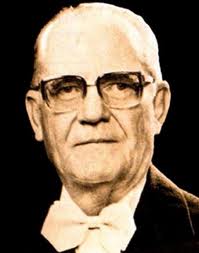Plinio Jr escreveu:P44 escreveu:(...)
The Warsaw Ghetto was the largest of the Jewish ghettos established by Nazi Germany in the General Government during the Holocaust in World War II.
Between 1940 and 1943, starvation, disease and deportations to concentration camps and extermination camps dropped the population of the ghetto from an estimated 450,000 to approximately 70,000.[b] In 1943 the Warsaw Ghetto was the scene of the Warsaw Ghetto Uprising, one of the first mass uprisings against Nazi occupation in Europe.[/b]
http://en.wikipedia.org/wiki/Warsaw_ghettoo quê em 1944????
Pelo visto, ou vc desconhece história ou gosta de omitir fatos, não me refiro ao gueto e sim ao
Levante de Varsóvia....
e vc não sabe inglês mas eu ponho em letras grandes...
conhece o significado da palavra "UPRISING"
?
Talvez isto ajude, eu já estou cansado de tt lição...
http://babelfish.altavista.com/EDITADO:
Dou a mão á palmatória , utilizei de novo aquela coisa chamada "GOOGLE" e pesquisando por "warsaw uprising" encontrei:
The Warsaw Uprising of 1944 — a heroic and tragic 63-day struggle to liberate World War 2 Warsaw from Nazi/German occupation. Undertaken by the Home Army (Armia Krajowa, AK), the Polish resistance group, at the time Allied troops were breaking through the Normandy defenses and the Red Army was standing at the line of the Vistula River.
Warsaw could have been one of the first European capitals liberated; however, various military and political miscalculations, as well as global politics — played among Joseph Stalin, Winston Churchill and Franklin D. Roosevelt (FDR) — turned the dice against it.
This site is dedicated to all those who fought for their freedom in the Warsaw Uprising of 1944 as well as all those who, as civilians, perished in the effort.
http://www.warsawuprising.com/mas que leio....afinal os SANTOS Churchill e Roosevelt TAMBÉM foram cumplices do falhanço do levantamento...


Q: Why did the Warsaw Uprising of 1944 begin? Why did it fail? [ Okulicki ], [ Remembering ]
A: The Home Army's attempt to free Warsaw before the entry of the Red Army was prompted mainly by political and ideological reasons [ NKVD ]. The Uprising was expected to be short, a week long at the most, and have the character of a mopping-up operation. The main reasons for starting the Uprising:
Liberate the City Most of the underground believed that a Polish London-based government-in-exile had to be established in Warsaw before the newly created Russian-sponsored Committee of National Liberation would take charge. Military developments on the Eastern and Western fronts appeared to have created a singular opportunity to wrest control of Warsaw from the collapsing Germans shortly before the entry of the victorious Red Army. At the same time, the Soviet-controlled radio Kosciuszko issued appeals to Warsaw inhabitants to raise up against Germans. [ kosciuszko ]
German Collapse During the Spring east front offensive, twenty five German divisions had been destroyed. Red Army and Russian-commanded Polish troops reached the Vistula river. Disorganized front Wehrmacht troops were withdrawing through Warsaw and German civilians, in panic, were evacuating from the city. At the same time, the attempted Hitler assassination was announced. On the western front, victorious Allied troops were breaking through Normandy defenses. [ map ]
Call for 100,000 Men On July 27, the German Governor of occupied Poland Hans Frank called for 100,000 Polish men between the ages of 17–65 to arrive at several concentration places in Warsaw. They were to be employed as laborers constructing German fortifications around the city. The Home Army interpreted this call as an attempt to neutralize and destroy the underground forces and urged everybody to ignore it. At the same time, expecting German retributions, the Home Army commander ordered mobilization in the Warsaw region.
The main reasons for the Uprising's failure:
Global Politics In the early spring of 1943, the Soviet Union broke off its diplomatic relationships with the Polish government-in-exile. This was in response to a Polish call for an International Red Cross investigation of the Katyn massacre. From that point on, the Soviet Union's government became openly hostile to the lawful Polish government in London and its representation in occupied Poland. [ Katyn ]
Lack of Support The Russian East front offensive had stopped on August 3rd just ten miles from Praga, Warsaw's right bank district. Although Russia controlled over 100 airfields within Warsaw's range, their planes disappeared from the Warsaw sky until September 10th. Moreover, the first massive Allied airdrop took place on September 18th at the time the Uprising was already doomed.This delay was in large part caused by the Soviet Union's refusal to allow Allied planes on missions to Warsaw to land on its airfields. On September 16th, when the Red Army had reached Warsaw's right bank, it made only a half-hearted effort to storm the city. All their attempts were conducted by the Russian-commanded Polish Army of Gen. Berling. [ allied support ]
Miscalculations The Home Army believed that the Soviet Union's military goal of their spring offensive was to capture Warsaw. Poles were unaware that this objective might be superseded by the Soviet Union's political goal of eliminating all of the potential opponents of the future communist-led government in Poland. The Home Army did not take into account the consequences of the agreement reached among Roosevelt, Churchill and Stalin at the Teheran conference at the end of 1943, which placed Poland within the Soviet sphere of influence (control). Also, unknown to the Poles, at that conference Stalin received from Roosevelt assurances [ teheran ] to acquire the Polish eastern provinces the Soviet Union occupied during 1939–1941 as a result of the Ribbentrop-Molotov pact. [ map ],
[ britain & uprising ]
http://www.warsawuprising.com/faq.htm#W ... %20reasons






.jpg)

![Fogo! [004]](./images/smilies/004.gif)



